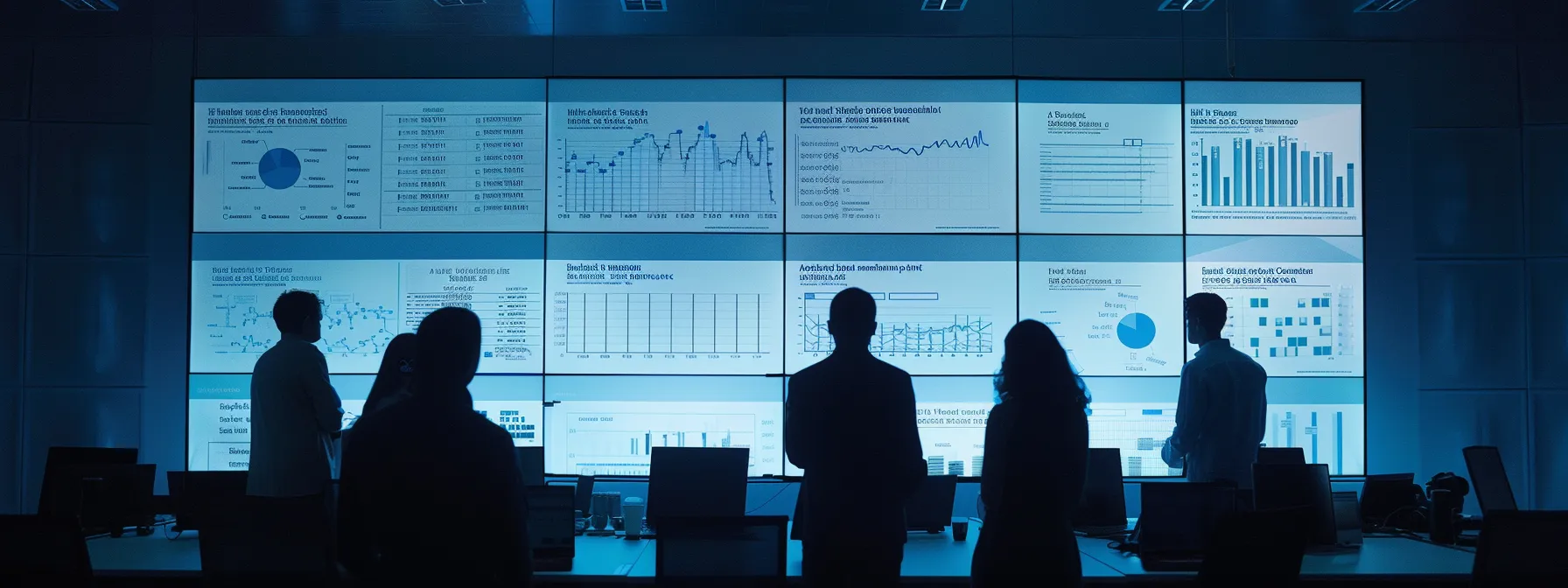
Essential Practices for Safeguarding Customer Data
Is your business truly safe when it comes to CRM security? With increasing threats like malware and data breaches, maintaining regulatory compliance and ensuring confidentiality is more critical than ever. In this post, I’ll cover essential practices for identifying vulnerabilities in your CRM system, implementing robust access control measures, and securing your data lake solutions. By understanding these strategies, you’ll be better equipped to shield sensitive customer information and protect your business from potential risks. Let's tackle these concerns together and enhance your CRM security.
Understanding the Importance of CRM Security in Business Landscape

With rising threats like cyberattacks and vulnerabilities in cloud computing, protecting customer data has never been more critical. Data breaches can severely impact customer trust, affecting long-term relationships. I’ll discuss the importance of maintaining robust physical security, ensuring the integrity of assets, and navigating increasingly complex regulatory compliance requirements to safeguard your customer information.
The Rising Threats to Customer Data
Customer data faces numerous rising threats in today’s digital landscape, driven by the increasing sophistication of cyberattacks and vulnerabilities that come from inadequate data management practices. With a focus on data security, companies must prioritize redundancy in their systems to ensure that even if one layer of protection fails, there are backups in place. Implementing a strong document management policy can help mitigate risks and cultivate a culture of data protection among employees.
Impacts of Data Breaches on Customer Trust
When a data breach occurs, the fallout can be devastating for customer trust. Customers expect their personal information to be protected, and when that trust is broken, it can lead to long-lasting damage to relationships. For example, if a company fails to implement robust network security and data storage solutions, it risks not only losing sensitive data but also the loyalty of its clients, who may feel their data integrity is compromised. Prioritizing storage security and having an effective data backup strategy can greatly reduce these risks and help restore confidence among customers.
Navigating Regulatory Compliance Requirements
Navigating regulatory compliance requirements can feel overwhelming, especially with the complexities of the General Data Protection Regulation (GDPR) at play. I’ve seen how crucial it is to establish a strong architecture within your data storage area network to ensure compliance and minimize the risk of data breaches. By applying the principle of least privilege, you can limit access to sensitive information, making it easier to uphold regulatory standards and protect your customers’ data effectively.
Identifying Vulnerabilities in Your CRM System

Identifying vulnerabilities in your CRM system is crucial for keeping customer data safe. Common weaknesses in CRM configurations can lead to significant security issues, while risks associated with third-party integrations can expose sensitive data in transit. I'll also cover how assessing internal security protocols can prevent downtime and failures, ensuring your secure cloud and cloud storage practices are on point.
Common Weaknesses in CRM Configurations
When I think about CRM configurations, several common weaknesses immediately come to mind that can jeopardize cloud security. For example, if password policies aren't strict enough, it leaves systems vulnerable to brute force attacks, where cybercriminals can easily guess passwords to gain unauthorized access. Additionally, without proper backup solutions and using unreliable object storage, valuable customer data could vanish, leading to significant disruptions and loss of trust; this is something I’ve seen happen to businesses that didn’t prioritize scalability in their systems. Addressing these weaknesses by implementing stronger security measures and regular audits can make a substantial difference in keeping customer information safe.
Risks Associated With Third-Party Integrations
When it comes to third-party integrations, I’ve observed that they can bring significant risks to your CRM system. These partnerships may expose sensitive data during transit, especially if surveillance measures aren't in place to monitor these connections. Organizations often overlook the importance of conducting regular audits of their IT infrastructure, which can lead to gaps in data storage security and increase the risk of potential breaches.
Assessing Internal Security Protocols
When assessing internal security protocols, I always emphasize the need for a thorough review of user access to sensitive data. It's crucial to ensure that only authorized personnel have the ability to access personal data stored in your cloud systems. I’ve implemented practices like regular access audits and role-based permissions to effectively manage who can view or alter important information, helping to bolster cloud storage security and ultimately protecting data from potential breaches.
Implementing Robust Access Control Measures

Establishing role-based access permissions is key for safeguarding against data breaches in CRM systems. I always recommend enhancing security with multi-factor authentication to add an extra layer of protection. Regular auditing of user access rights helps identify potential vulnerabilities. Each of these steps plays an important role in improving cloud computing security and protecting sensitive data from threats like ransomware.
Establishing Role-Based Access Permissions
Establishing role-based access permissions is crucial for reinforcing data storage security within your CRM system. I've seen firsthand how clearly defined roles help streamline key management by ensuring that only the right people—those authorized—can access sensitive customer information. This not only simplifies the complexity of managing user permissions but also bolsters authentication processes, ultimately safeguarding your data from unauthorized access.
Enhancing Security With Multi-Factor Authentication
Enhancing security with multi-factor authentication (MFA) is a game-changer for protecting sensitive customer data in your CRM systems. By requiring a second verification step in addition to the standard password, MFA adds an essential layer of protection against unauthorized access. With a zero trust security model in place, even if an attacker manages to get hold of a single key, they won't easily gain access to your valuable database—especially when combined with strong disk encryption protocols that safeguard data at rest.
Regular Auditing of User Access Rights
Regular auditing of user access rights is a must to ensure your CRM system is secure and effective. I’ve seen companies that fail to do this often face increased risks of data loss and issues related to unauthorized access. By periodically reviewing who has access to sensitive information, you can implement safeguards like cloud storage encryption and data masking, ensuring that only the right people are in your ecosystem and minimizing any potential risks associated with data breaches.
Securing Customer Data Storage Solutions

To secure customer data storage, it’s essential to focus on three key areas: encrypting CRM databases to protect against vulnerabilities, implementing safe backup and recovery practices, and utilizing secure servers for data storage solutions. I'll share insights on how adopting these security solutions, such as biometrics and regular patches, can significantly enhance your CRM’s defenses.
Encrypting CRM Databases for Data Protection
Encrypting CRM databases is a fundamental step in protecting data at rest against unauthorized access. I’ve noticed that using strong algorithms, alongside robust firewalls, makes a significant difference in safeguarding sensitive customer information. To stay ahead of threats, integrating machine learning and automation can help continuously monitor for anomalies, ensuring your security measures adapt to new risks without constant manual intervention.
Safe Backup and Recovery Practices
Safe backup and recovery practices are vital for protecting customer data stored in your CRM system. I make it a point to implement regular backup schedules that utilize encryption, ensuring that even if data corruption occurs, sensitive information remains secure. Choosing a reliable data center for backups is critical, as this adds an extra layer of protection and helps mitigate risks associated with endpoint security and potential threats to cloud data.
Regularly scheduled backups to ensure data integrity.
Use of encryption to secure sensitive information during backups.
Choosing reliable data centers to minimize risks from threats.
Utilizing Secure Customer Data Storage Solutions
When it comes to utilizing secure customer data storage solutions, I always emphasize the importance of adhering to the Payment Card Industry Data Security Standard (PCI DSS). This framework ensures that sensitive payment information is protected, reducing the risk of data breaches. Implementing robust encryption methods like Transport Layer Security (TLS) is crucial for safeguarding data in transit, while also having effective disaster recovery plans in place to quickly restore information in case of an incident. On top of that, I recommend avoiding physical USB drives for storage, as they can be easily misplaced or compromised, opting instead for secure cloud solutions that offer better control and monitoring of user behavior.
Training Your Team on CRM Security Best Practices

Building a Security-Conscious Culture
Building a security-conscious culture starts with my team understanding the importance of secure data management within our CRM systems. I encourage everyone to actively engage with our security features and analytics, as these tools not only protect customer information but also enhance our database's overall performance. This approach fosters a sense of ownership and accountability, motivating us all to prioritize security in our daily operations.
Providing Ongoing Security Education
Providing ongoing security education is essential for keeping our team's knowledge sharp and ensuring we comply with regulations governing customer data. I've found that regular training sessions not only boost awareness about data encryption practices but also empower everyone to recognize potential risks before they escalate. By fostering an environment of continuous learning, we can collectively strengthen our CRM security posture and protect sensitive customer information more effectively.
Establishing Incident Response Protocols
Establishing incident response protocols is key for reacting quickly to any potential data breaches within your CRM system. I’ve found that having a clear action plan enables my team to address threats promptly, minimizing damage and restoring security faster. By regularly reviewing and practicing these protocols, we not only stay prepared but also build confidence in our ability to safeguard customer data effectively.
Maintaining Security Through Continuous Monitoring and Updates

Implementing real-time security monitoring is crucial for detecting threats as they happen, while keeping CRM systems updated with regular patches helps close vulnerabilities. It’s also essential to prepare for emerging security threats that can catch businesses off guard. These practices form a solid foundation for ensuring your customer data remains secure.
Implementing Real-Time Security Monitoring
When I talk about implementing real-time security monitoring, I consider it a game-changer for keeping customer data safe. Setting up continuous monitoring helps us catch potential threats the moment they arise, allowing us to take immediate action before any damage can occur. In my experience, investing in an effective real-time monitoring system not only boosts our security posture but also gives my team peace of mind, knowing we’re proactive about safeguarding sensitive information.
Keeping CRM Systems Updated With Patches
Keeping CRM systems updated with patches is one of those tasks that often gets overlooked, but I can’t stress enough how crucial it is for security. When software vulnerabilities are patched, it helps close the door on potential exploits that hackers might target. I’ve seen firsthand how businesses that prioritize these updates not only safeguard customer data but also boost their overall system performance.
Preparing for Emerging Security Threats
Preparing for emerging security threats is one of those areas where staying sharp really pays off. I always emphasize the need to keep an eye on the latest trends in cyber threats, as attackers are constantly coming up with new tactics. Regularly assessing our systems and adapting our strategies based on potential risks is a proactive way to ensure we’re not caught off guard. I’ve seen businesses thrive by implementing flexible security frameworks that evolve as new threats emerge.
Essential Practices for Safeguarding Customer Data's Conclusion
Optimizing CRM security is crucial for protecting customer data in today’s digital landscape amidst growing threats like cyberattacks and insider misuse. By implementing robust access controls, conducting regular audits, and staying updated with security patches, businesses can significantly enhance their defenses against potential breaches. Prioritizing data protection fosters customer trust and preserves long-term relationships, ultimately driving business success. Take action now to safeguard sensitive information and ensure your organization remains resilient in the face of evolving security challenges.